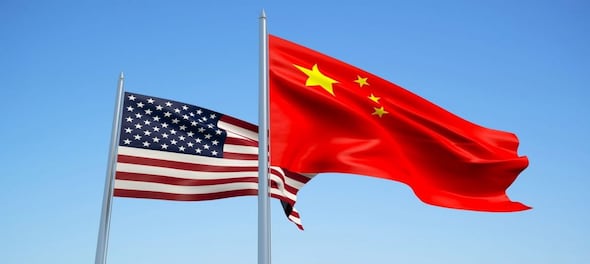
President Joe Biden on Wednesday signed an executive order that will prohibit some new U.S. investment in China in sensitive technologies like computer chips and require government notification in other tech sectors.
According to Reuters, the long-awaited order authorizes the U.S. Treasury secretary to prohibit or restrict U.S. investments in Chinese entities in three sectors: semiconductors and microelectronics, quantum information technologies and certain artificial intelligence systems.
Meanwhile CNBC reported that China has slammed Biden’s order limiting U.S. overseas tech investment. As per the report China said that the order “seriously disrupts the security of the global industrial and supply chains.”
Beijing stops short of immediately issuing counter measures, but said it “reserves the right” to respond.
While the order targets specific subsets within these sectors, the precise details were not provided by the administration, and the proposal is open for public input.
The primary objective of this action is to prevent the flow of American capital and expertise that could contribute to China's development of technologies capable of supporting its military advancement, potentially undermining U.S. national security. The scope of the measure encompasses private equity, venture capital, joint ventures, and greenfield investments.
In a letter to Congress, President Biden declared a national emergency to address the potential threat posed by countries like China in the advancement of sensitive technologies essential for military, intelligence, surveillance, and cyber capabilities. China responded by expressing its "grave concern" and asserting its right to take appropriate measures in response.
The Chinese Commerce Ministry issued a statement criticizing the order for disrupting the normal operations of businesses and undermining the international economic and trade order. China urged the U.S. to respect market economy principles and fair competition, refraining from impeding global economic exchanges and cooperation.
The U.S. intention to introduce investment restrictions on China has provoked strong dissatisfaction from China's foreign ministry, leading to diplomatic representations against these measures. China emphasized its expectation that the U.S. would adhere to its commitment to not decouple from China or hinder its economic progress.
The core of the executive order focuses on investments made in Chinese firms engaged in developing software for chip design and chip manufacturing tools. These areas have been traditionally dominated by the U.S., Japan, and the Netherlands, with China attempting to establish its indigenous alternatives. The White House confirmed that consultations with allies, including feedback from the Group of Seven nations, informed the formulation of the plan.
The order's regulations will apply to new investments rather than existing ones, although the Treasury may request disclosure of previous transactions. These actions could escalate tensions between the world's two largest economies. Despite this, U.S. officials underscored that the prohibitions intend to address severe national security risks and not to sever the interdependent economic ties between the countries.
While there are expected to be exemptions in certain cases, the executive order will bar specific deals and necessitate investors to notify the government about their investment intentions. The Treasury department anticipates excluding transactions involving publicly traded instruments and intracompany transfers from U.S. parent companies to their subsidiaries.
The Chinese technology sector, previously a magnet for U.S. venture capital, has experienced a sharp decline in U.S. investment due to heightened geopolitical tensions. Notably, U.S. venture capital investment in China plummeted from $32.9 billion in 2021 to $9.7 billion in the last year, with a mere $1.2 billion invested in Chinese tech startups this year.
Implementation of the order is projected to occur next year, following multiple rounds of public comment and a 45-day initial comment period. However, Republican Senator Marco Rubio criticized the plan for having numerous loopholes and neglecting the dual-use nature of critical technologies. The Chinese embassy in Washington expressed disappointment with the plan, stating that it would adversely affect both Chinese and American businesses and disrupt normal cooperation.
(with inputs from reuters)
First Published: Aug 9, 2023 7:25 PM IST
Check out our in-depth Market Coverage, Business News & get real-time Stock Market Updates on CNBC-TV18. Also, Watch our channels CNBC-TV18, CNBC Awaaz and CNBC Bajar Live on-the-go!


Lok Sabha Election: Re-elections at Ajmer booth begins
May 2, 2024 4:54 PM
Rahul will be forced to take out 'Congress Dhoondho Yatra' after June 4: Amit Shah in Bareilly
May 2, 2024 4:36 PM

